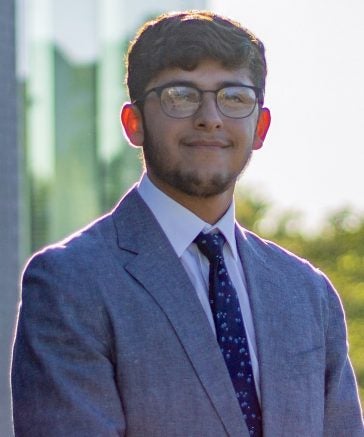By Neil Nachbar
The most common path to earning an engineering degree from the University of Rhode Island is to enroll in one of the engineering programs straight out of high school, but it’s certainly not the only path.
There are many students who transfer to URI from other schools, for financial reasons or to move closer to home. Some students transferred closer to home due to the pandemic. Those who have served in the military, transfer at different stages of life. Some may have earned college credits prior to serving.
Others may not have completed the prerequisite courses, or have the grade point average, to be accepted directly into URI’s College of Engineering.
Regardless of one’s background, there are many more paths to an engineering degree from URI than most people realize.

Transfer Option
Each year, approximately 75 students transfer into a URI engineering program from another college, with 30 to 40 of those students coming from the Community College of Rhode Island.
“For students who need to work while in school, the Community College of Rhode Island can be an excellent pathway because of the financial and course schedule flexibility it offers,” said Assistant Dean Jared Abdirkin.
Kyle Alessandro is among those who started his college career at CCRI. On the weekends, Alessandro works about 16 hours at Walgreens to help pay for college. He also commutes from his home in Warwick.
“CCRI provided the flexibility and convenience I was looking for at the time,” said Alessandro. “It served as a stepping stone to URI.”
All of Alessandro’s engineering-related credits transferred over from CCRI. After one full semester, he’s excelling in his classes at URI, as he did at CCRI.
“The process was almost seamless,” recalled Alessandro. “I met with quite a few people from the College of Engineering, as well as URI Admissions, who were very helpful in getting me on the correct path. I felt like I finished at CCRI one day and was enrolled in URI classes the next day.”

‘Wanting Engineering’ Option
Students who are admitted to URI, but don’t meet all of the academic requirements to be admitted to the College of Engineering, may enter the program through the Wanting Engineering option.
“Some students might not have had a robust background in science and math, or had a great overall academic record, but in their freshman year at URI they have a chance to prove themselves by working hard and taking advantage of the resources that are available,” said Abdirkin.
Those choosing the Wanting Engineering route are assigned an academic advisor to guide them through the process of becoming an engineering major. Whether the student lives in one of the engineering dorms or not as a freshman, they have access to all of the resources, including tutoring, that the engineering students have.
“Students with Wanting Engineering status are treated just like engineering students,” said Abdirkin. “We’re keeping that door open for them to walk through.”
Jonathan Villada originally intended on studying landscape architecture at URI. Once he took a closer look at the program, he realized it wasn’t a great fit for him.
“During summer orientation, I switched to the Wanting Engineering program, with the goal of majoring in civil engineering,” said Villada. “I always excelled in math and science, but the classes I took in high school weren’t the most vigorous.”
Because Villada took pre-calculus in his freshman year at URI instead of calculus, he caught up on his math requirements by taking a course during a summer session. After his sophomore year, Villada had a 3.0 grade point average and was fully admitted into the civil engineering program.
Villada, who is from Pawtucket, was not only on schedule to earn his bachelor’s degree in four years, but he started taking extra courses through the College of Engineering’s FastTRAC5 program, which would enable him to earn a master’s degree in structural engineering after a fifth year.
For those taking the Wanting Engineering path, Villada’s advice is to build a support system with peers who may be in a similar situation.
“It’s comforting to make a group of friends who might not have had everything figured out right away,” said Villada. “You can help each other out, which is what engineers do all the time when working in teams.”
Once Villada earns his master’s degree in spring 2021, he plans on pursuing his doctorate in civil engineering at URI.
